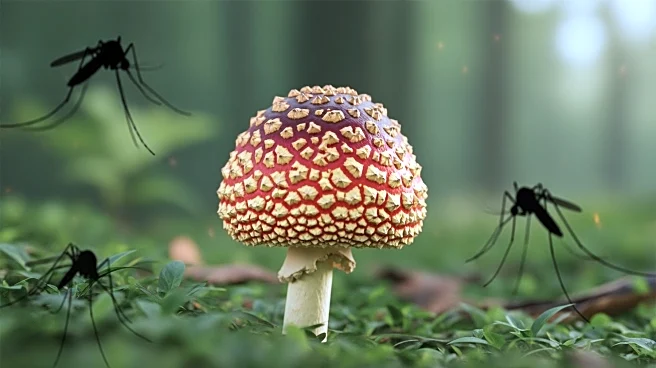What's Happening?
An international team of researchers has engineered a new strain of Metarhizium fungus that emits a floral scent to attract and kill mosquitoes. This innovative approach leverages mosquitoes' natural attraction to flower scents, using a compound called
longifolene to lure them. Once mosquitoes come into contact with the fungus, they become infected and die within days. The fungus is designed to target mosquitoes specifically and is harmless to humans, as longifolene is commonly used in perfumes. This development could provide a cost-effective and environmentally friendly solution to reduce mosquito-borne diseases, particularly in poorer regions.
Why It's Important?
The development of this fungus is significant as it offers a new tool in the fight against mosquito-borne diseases like malaria and dengue, which are becoming resistant to chemical pesticides. The fungus's affordability and simplicity make it particularly promising for use in developing countries, where these diseases are most prevalent. Additionally, the fungus's ability to break down naturally in the environment presents an eco-friendly alternative to chemical pesticides. This innovation could potentially save thousands of lives by reducing the spread of deadly diseases.
What's Next?
The research team is conducting larger outdoor trials to prepare the fungus for regulatory review. If successful, this could lead to widespread adoption of the fungus as a mosquito control method. The researchers aim to develop a diverse set of tools to combat mosquitoes, allowing different regions to choose the most effective methods for their specific needs. As global temperatures rise, mosquito-borne diseases could spread to new areas, including the United States, making this research increasingly relevant.

















